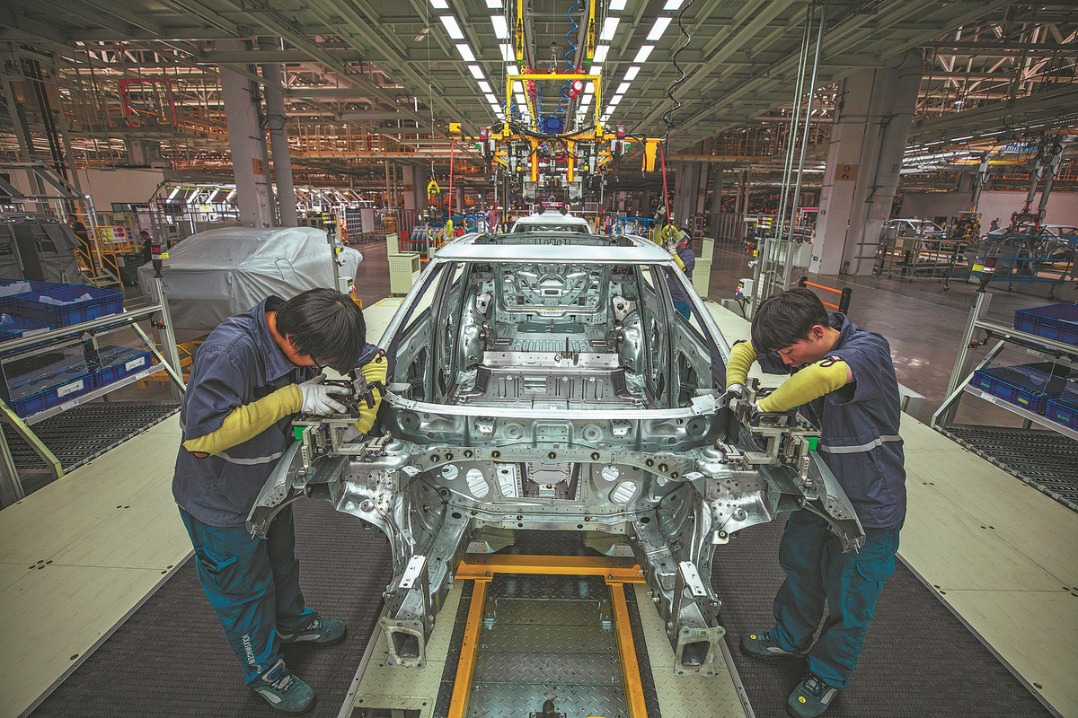Not to be missed this time


While Africa wasn't on the earlier Trump administration's radar, its rising importance could have significant implications for the continent in the coming four years
The inauguration of Donald Trump as the 47th president of the United States on Jan 20 is fraught with apprehension among world leaders, especially in the West, the G20 and Global South countries. The implications of the second Trump presidency are being intensely debated across the world.
On the campaign trail, Trump promised to prioritize a range of domestic issues, including immigration, inflation and the introduction of higher trade tariffs. He also emphasized a return to his "America First" foreign policy, which unfortunately will mean a turn toward greater isolationism, protectionism and less international as well as multilateral collaboration.
Unfortunately, one of the focal points of this strategy could include continued efforts by the US to counter China's commercial, security and political influence in Africa, which is regarded as counterproductive and senseless by the continent. These malicious attacks are aimed at deliberately misleading and manipulating public opinion on China's true intentions in Africa and globally.
In the second Trump administration, the economic relationship between the US and African countries is likely to be driven by a focus on bilateral trade agreements that prioritize US interests. Trump's "America First" philosophy, which seeks to reduce trade deficits and protect jobs, will likely result in a push for one-on-one trade deals with African countries. While African nations are interested in broader initiatives such as the African Growth and Opportunity Act, the Trump administration may also opt for more targeted negotiations, seeking deals that directly benefit US industries and investors.
To realize the benefits of its development and integration agenda, Africa and China are committed to calling on the international community to support the efforts by African countries to make progress with the African Union's Agenda 2063, Africa's blueprint and master plan for transforming Africa into the global powerhouse of the future and for the full implementation of the African Continental Free Trade Area.
The growing friendship between Africa and China is defined by the three major characteristics of being strategic, multidimensional and mutually beneficial. This growing relationship is underpinned by four important cooperation platforms, namely the Forum on China-Africa Cooperation, BRICS, the Belt and Road Initiative and South-South cooperation.
There are many reasons why Africa could be the growth capital of the world. For a start, the continent's competitive advantages include a young population, abundant mineral wealth, fertile land and a growing renewable- and distributed-energy sector.
As a result, the Institute for Security Studies in Pretoria, South Africa, recently argued that the new Trump administration could possibly present "African countries with an opportunity to take a proactive stance in shaping their political and economic relations with the US and developing resilient strategies instead of reacting to shifting US policies".
Furthermore, despite concerns expressed, the second coming of Trump could offer opportunities for self-development as Africa may be forced to depend less on US aid. Instead, it could increasingly look to harness its vast human and material resources for its own development. African leaders will need to decide how to navigate partnerships to secure investment, maintain political stability, and address the continent's long-term development needs through inward-looking strategies. This bodes well for the continent in the long run.
The outlook for Africa's economies appears bright, but it hinges to a large extent on how well the continent can leverage its potential.
Given the recent decline of US economic engagement in Africa, it is to Chinese and African leaders' credit that the comprehensive, measurable, practical and forward-looking outcome of the FOCAC meeting in Beijing last year was generally viewed as an unqualified success.
This has given significant momentum to the flourishing friendship, solidarity and cooperation between Africa and China. The FOCAC has, in fact, become a vital and central platform for Africa and China friendship and cooperation.
In his speech at the FOCAC Beijing summit in 2024, Chinese President Xi Jinping said China-Africa relationship was at its "best in history" and he pledged to elevate the relationship to an "all-weather China-Africa community with a shared future for the new era".
Another recent positive development was Chinese Foreign Minister Wang Yi's productive visit to Namibia, the Republic of Congo, Chad and Nigeria. It is much appreciated by African leaders as it is indicative of the profound friendship between China and Africa and the continuity of China's friendly cooperation as the visit continued the 35-year tradition of beginning Beijing's diplomatic calendar with stops across Africa, underlining China's commitment to take cooperation with the continent to the next level.
Consistent with South Africa's history it has opted for a non-aligned position in its international relations, the South African government has deliberately avoided aligning the country with any of the major powers or blocs. Rather, South Africa has sought to forge cordial relations with all countries. While South Africa has adopted a non-aligned position, its government continues to pursue positions that are in keeping with the United Nations Charter, seeking to advance an inclusive and representative world order, to strengthen multilateralism and to promote the resolution of conflict through dialogue.
It is in pursuit of this approach that South Africa has worked to strengthen relations with countries around the world. China has been South Africa's largest trading partner over the past decade and similarly it has also been China's number one import and export destination among African countries. People-to-people exchanges have grown by leaps and bounds.
While Africa was not a major focus of the previous Trump administration, the continent's rising geopolitical importance and economic potential could mean significant implications for US-Africa relations over the next few years. The second Trump administration may have to find a delicate balance between fostering economic ties, securing US interests, and not alienating African governments that see China as a valuable partner.
Amid major changes going on in the world, the booming development of the Global South, such as China and Africa, has a profound impact on global historical progress. A stronger and more developed Africa will surely make greater contribution to world peace and development.
The author is a senior research fellow at the Institute of African Studies at Zhejiang Normal University and a former senior diplomat in the South African Department of International Relations and Cooperation. The author contributed this article to China Watch, a think tank powered by China Daily. The views do not necessarily reflect those of China Daily.
Contact the editor at editor@chinawatch.cn.
































